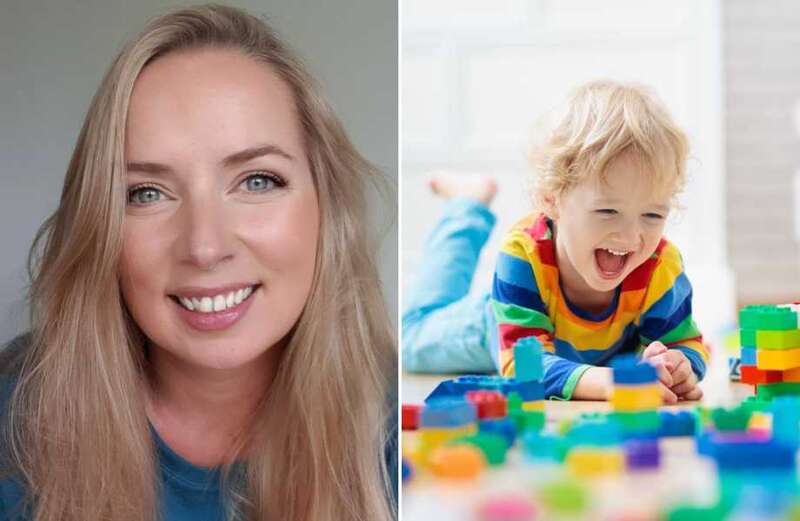KNOWING exactly what to say to your child to set them up for success in all aspects of their life can be difficult.
But there are some phrases that can help you unwittingly knock your child’s confidence as they grow older.


Common “mistakes” from parents such as comparing your children to others, categorising them and commenting on their looks are some habits that can actually do more harm than good.
Parenting expert Catherine Hallissey, who is a psychologist and mum-of-five, has explained the unlikely things you need to avoid with your children which many of us do without even knowing.
Firstly, Catherine talks to Fabulous about what she calls “the perils of praise” and how emphasising on the “finished product” can be a hindrance to your child’s growth.
 I want to help young primary pupils with their warring parents
I want to help young primary pupils with their warring parents
She says: “There's a study done on children when psychologists use praise in an IQ test that actually leads to lower scores, because children are less likely to take a chance.
“So when you're praising your child for something they're doing well, instead of saying,
‘Wow, you did that so quickly’, or ‘That was perfect’, instead, shape your language to reflect on the experience.
“Saying something like, ‘You look like you're really enjoying that’, or, if they're showing you their artwork, instead of saying, ‘Oh, that's beautiful’, say, ‘Wow, you look like you really enjoyed doing that. Tell me, why did you draw it like this?’ or, ‘Why did you choose that colour?’”
Catherine suggests asking your child to describe the process to you, which then shifts their attention from the finished product to how they felt when they were completing the activity or task.
“When you think about what we want them to be like in their teens and adults, we don't want them to be focused on the finished product.
“Yes, of course, that's important,” she says, “But we want them to have an enjoyment in the mastery of their tasks.”
Another key idea she teaches to parents is to avoid the idea of comparison.
She explains how damaging it can be to compare your child to their sibling or friend.
Catherine said: “One part where I see parents falling down, is comparing [their children] to others, even positively.
 Amy Childs prepared to get cruelly mum-shamed after big decision about her twins
Amy Childs prepared to get cruelly mum-shamed after big decision about her twins
“Saying something like, ‘You're so fantastic at maths, if only your brother was half as good’, and this comparison language, while it does give the child a boost in the moment, it also separates them from their siblings and it can inadvertently give them the message that you only like them when they are achieving”.
The expert reminds parents that although this isn’t true, it’s all about how your child might perceive things.
Parents referring to their children as shy is another “common error”, according to Catherine.
Offering up a scenario based problem, she says: “Let's say you're introducing your child to someone, the classic thing of where they go behind you and then someone says, ‘Oh, he's very shy!’ Actually, that label is quite confining for a child.
“So it's very helpful for parents to have language to use. So instead say, ‘Oh, he's just warming up, he takes his time to get to know places and people and then he absolutely flies’, or something like that”.
The expert reminds us that this is because the term “shy” can actually be seen as a negative thing in society: “In reality, we have the whole spectrum of extraversion to introversion in adulthood and we also need to accept and honour that in childhood too”.
Elsewhere, Catherine invites parents to take a moment to pause if they look to categorise children depending on their interests or abilities for a very good reason.
She continues: “We all tend to categorise because there's this natural human ability to categorise people as the sporty one, the smart one, or the arty one.
“While that might seem like an accurate description, what it is, is confinement, when you are compared to others in this way, while it's not terribly damaging, what we're talking about is allowing children to flourish, and allowing children to flourish, which just means allowing them for growth and change.”
Finally, she emphasised the importance of not focusing on children’s looks as it can help install self-confidence issues from a young age.
Catherine commented: “We're always tempted to say, ‘Oh, you look so pretty’, or ‘What a handsome boy you are’, and it's a natural reaction. But if we can just pause, and just try and have it not all about [looks].
“It's just a small talk we do with children. But if you can find other ways to connect with them, it would be really, really helpful,” she said, urging parents to “remove the focus on looks.”
She also discourages adults from referring to children’s friends of the opposite sex as a “boyfriend” or “girlfriend.”
“That's actually introducing adult themes for our own entertainment, when really it's just their friend.
“We can just let them develop their friendships without adding in any uncomfortable thoughts where they have to deny that so and so is their boyfriend or girlfriend,” Catherine concluded.
This makes sure children are taught they can have healthy relationships with peers of any gender from a young age and removes the possibility of embarrassing them, even in a light-hearted way.


































